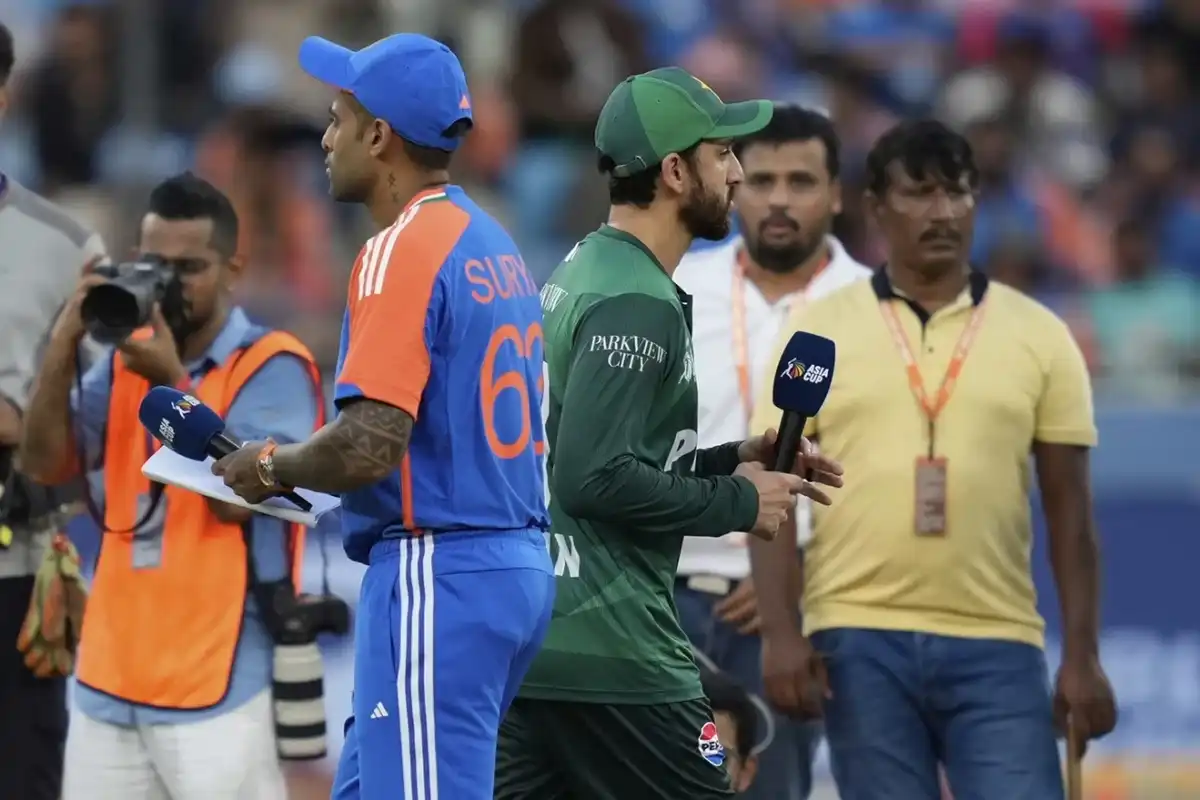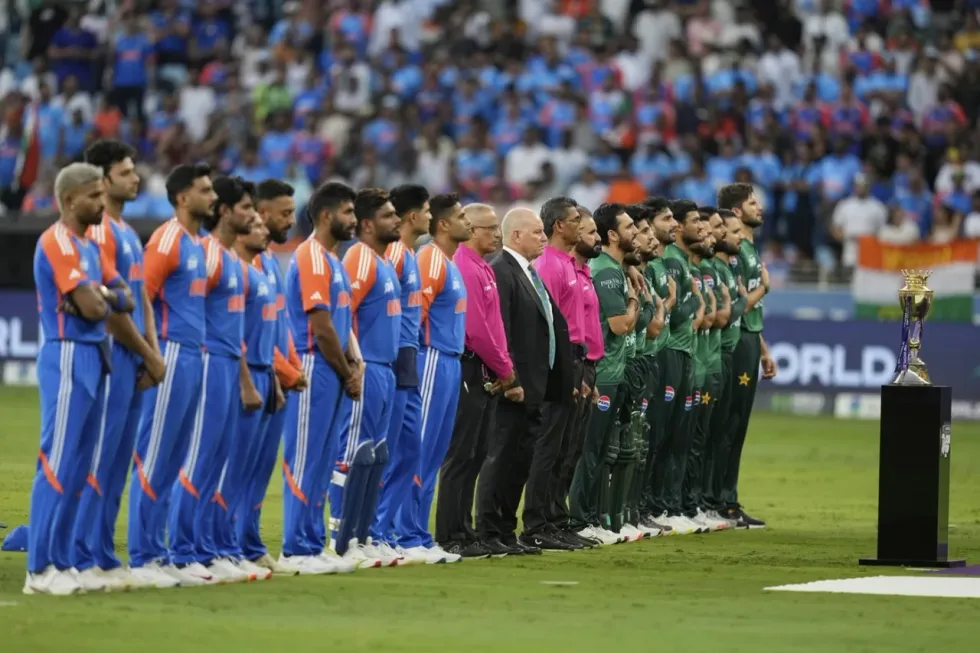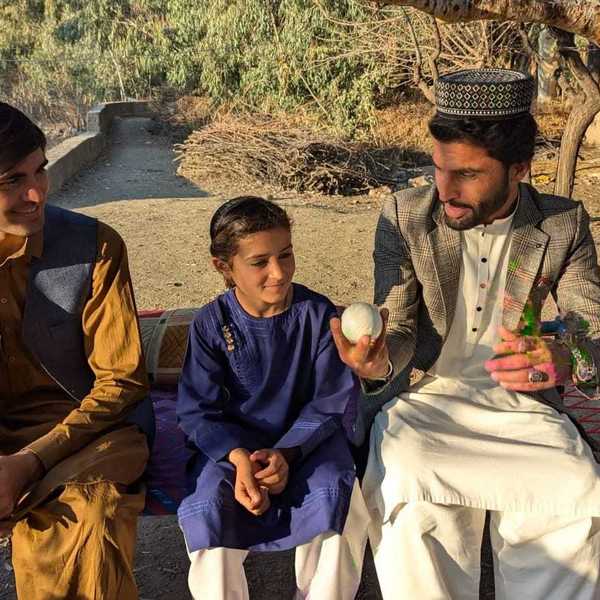When rivalry overtakes respect: Cricket, character, and the cost of politics on the field
In the end, trophies tarnish and scorecards fade, but character endures. If sport teaches us anything, it should be that the greatest victories are those won with integrity and respect
Menin Rodrigues
Guest Contributor
Menin Rodrigues is a Toronto-based communications consultant with a flair for sports writing.

Salman Agha and Suryakumar Yadav at the toss during their Asia Cup 2025 clash
ACC
When sportspeople and teams come on the field to face each other in any sport, this universal oath epitomizes the overriding promise:
“We swear to take part in this game with fair and loyal competition, respecting the regulations that govern it, and participating in the true spirit of sportsmanship—for the honor of our team, our country, and the greater glory of sport.
“Honor the game’s spirit, rules, and players – it mirrors the character of your school, country, and upbringing.”
Few maxims better capture the promise of sport. Yet during the recent Asia Cup clash between India and Pakistan, that promise faltered.
The refusal of India’s captain to shake hands with his Pakistani counterpart at the toss—and again after the match—was more than a minor breach of etiquette. It transformed a contest of skill into a political spectacle, raising uncomfortable questions about what our games are teaching the next generation.
Sport at its best is a rare arena where rivalry can coexist with respect. Rituals such as the handshake at the toss and after the final ball are more than formalities; they are symbolic acts of recognition and dignity.
A dangerous lesson
When those gestures are withheld, particularly in matches between two nations with long and complex histories, the impact reverberates far beyond the boundary ropes. It suggests that political antagonism can trump sportsmanship, and that is a dangerous lesson.
Honoring the spirit of the game means preserving unwritten conventions as much as observing formal rules. Rules make contests fair; traditions and gestures give them meaning.
When players refuse the customary handshake, a part of that meaning is lost—even if no official penalty exists. In this case, reportedly, Pakistan’s players extended their hands, but the Indian side had already withdrawn, underscoring the asymmetry of the moment and amplifying its symbolism.
The consequences of such behavior are not confined to professional sport. They ripple outward, shaping perceptions and behaviors at every level of play. Children, in particular, model themselves after their heroes. They imitate not just batting stances or bowling actions but also attitudes and gestures.
Millions of children across India, Pakistan, and their global diasporas watched this spectacle—imagine the profound impact it will have on their minds and on their aspirations to become cricketers of the future.
When a captain at the highest level refuses a handshake, it signals to impressionable viewers that disrespect can be excused if one is talented or victorious enough. This undermines the central lesson of sport: that grace in defeat and humility in victory are as vital as technical skill.
Across living rooms, cafés, and online forums from Karachi to Kolkata—and among diaspora communities worldwide—the incident sparked impassioned drawing-room debates. Parents, former players, and casual fans alike dissected the refusal to shake hands, arguing over whether it was an understandable political gesture or a blatant breach of sportsmanship.
For many, the conversation went beyond cricket to touch on national identity, values, and the kind of role models young people deserve. These discussions, heated yet revealing, underscored how deeply the public connects not only with the game itself but also with the conduct and character of those who play it.
Profound duty
In school grounds and local clubs, these small signals become powerful lessons. If star athletes model sportsmanship, children learn to respect the rules, their opponents, and the principles of fair play. If they model contempt or political antagonism, the same lessons are internalized in reverse.
In this way, elite players carry a profound duty. They represent not just a team or a country but also a set of values that young people absorb—sometimes subconsciously. A simple handshake can be as much an act of teaching as an act of sportsmanship.
Sporting institutions, schools, and governing bodies have long upheld the belief that sport builds character. But when athletes and captains put victory above all else—even above common courtesy—they risk eroding that foundation.

The game ceases to be the priority; the narrative becomes about posture, politics, and point-scoring. Small rituals, such as the coin toss and post-match handshake, may seem trivial, but their symbolic power is immense.
None of this is to deny the realities of national feeling or political tension. Yet even amidst conflict, sport can offer an alternative—a space for reconciliation, respect, and grace.
If sport is to fulfill that promise, its leaders must remember that the eyes of millions, including the youngest and most impressionable, are upon them. Their conduct becomes a living curriculum in ethics, resilience, and mutual respect.
In the end, trophies tarnish and scorecards fade, but character endures. If sport teaches us anything, it should be that the greatest victories are those won with integrity and respect. When we fail to honor even the small rituals that affirm our shared humanity, we diminish not our opponents but ourselves.
To borrow the original maxim: how we play mirrors who we are—our school, our country, our upbringing. That reflection deserves to shine with dignity, not discord.







Comments
See what people are discussing